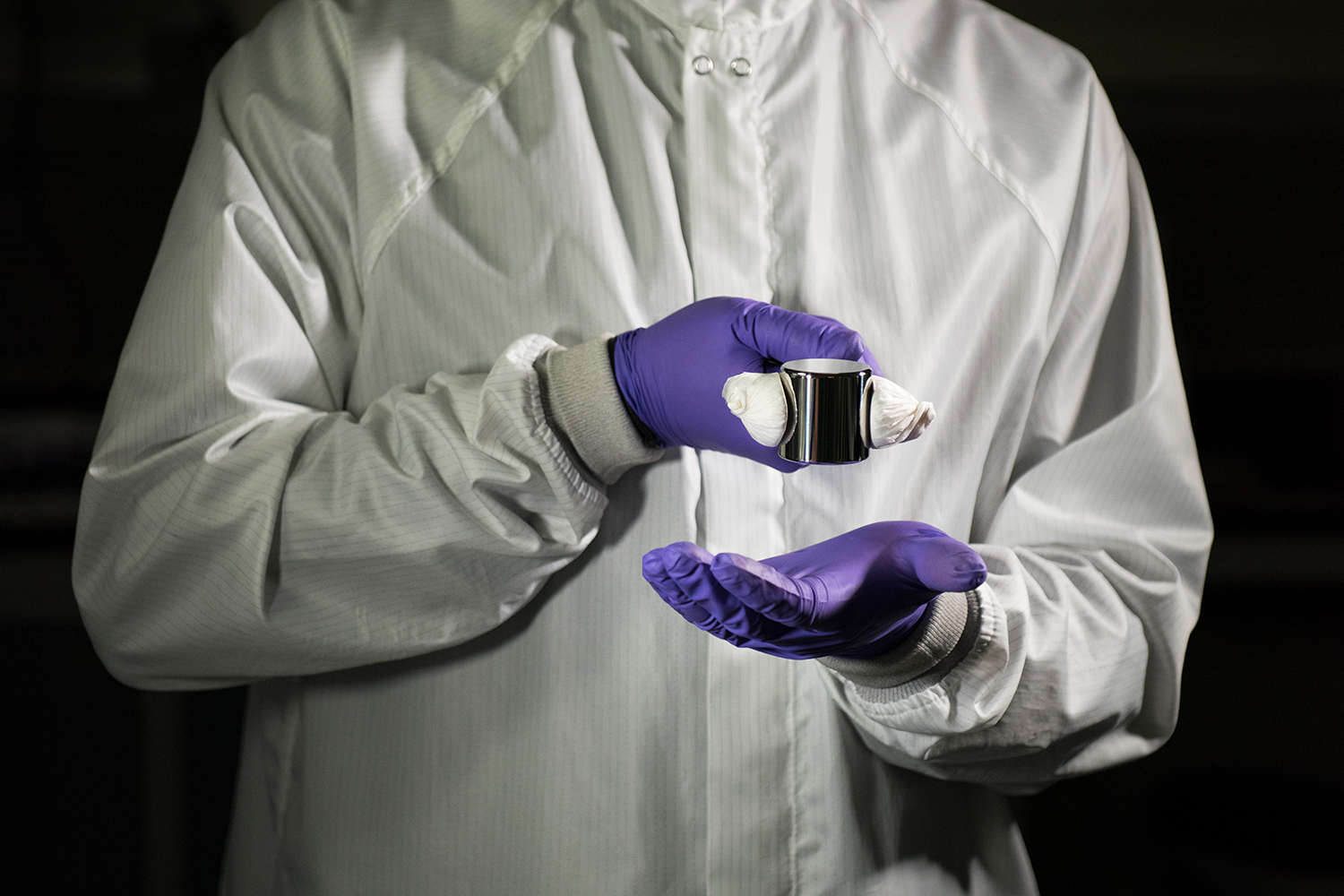
On Friday, November 16, a 129-year-old tradition will likely come to an end. Nearly all the world’s weighted measurements have relied on a single standard since 1889 — the International Prototype Kilogram (IPK), a block of metal made of platinum and iridium locked in a subterranean vault in Paris.
Around the globe, countries use copies of the IPK to develop their own reference weights, which they then use to calibrate scales. You can see the United States’ kilogram in the image above. From your bathroom scale to kitchen scale to fishing scale, each has been calibrated based on a physical object that can be traced back to the IPK in Paris.
But on Friday, metrologists will meet at the General Conference on Weights and Measures in Versailles, France, to vote on whether to replace the physical object with a constant that can be observed in the natural world. Rather than defined by a block of metal, weights will be expressed in terms of the Planck constant (h). The stated goal is to shift the standard toward a more reliable form, one that won’t be damaged or corrupted by environmental factors that cause it to slightly and inexplicably lose weight.
This move isn’t new. The past few decades have seen six of the seven metric units redefined by fundamental natural constants — the ampere redefined as the elementary electrical charge (e), the Kelvin redefined as the Boltzmann constant (k). By bringing an end to physical artifacts as measurement standards, the International System of Measurement (SI) may remain more accurate in the future.
“The SI redefinition is a landmark moment in scientific measurement,” JT Janssen, director of research at the United Kingdom’s National Measurement Institute, which is responsible for measurement standards across the country, said in a statement. “Once implemented, all the SI units will be based on fundamental constants of nature whose value will be fixed forever. This will pave the way for far more accurate measurements and lays a more stable foundation for science.”
Not everyone has been on board for the transition. Robert Crease, philosopher and science historian at Stony Brook University, shared some concerns voiced throughout the community. For one thing, measuring kilograms will depend on a sophisticated instrument called the Kibble balance, which weighs mass against an electromagnetic force. “They are tricky,” Crease told Digital Trends over email, “difficult to use.” There are currently only two labs that have used the instrument to accurately weigh a kilogram, The Verge reports.
“Does the fact that the new definitions require such a balance give an advantage to the wealthy countries that can afford them?” asked Crease, author of World in the Balance: The Historic Quest for an Absolute System of Measurement. “I can imagine situations where it might.”
Whether metrologists rely on a physical object or fundamental constant, the decision won’t likely directly impact our lives. In fact, it’s fair to say, we won’t feel a thing.


